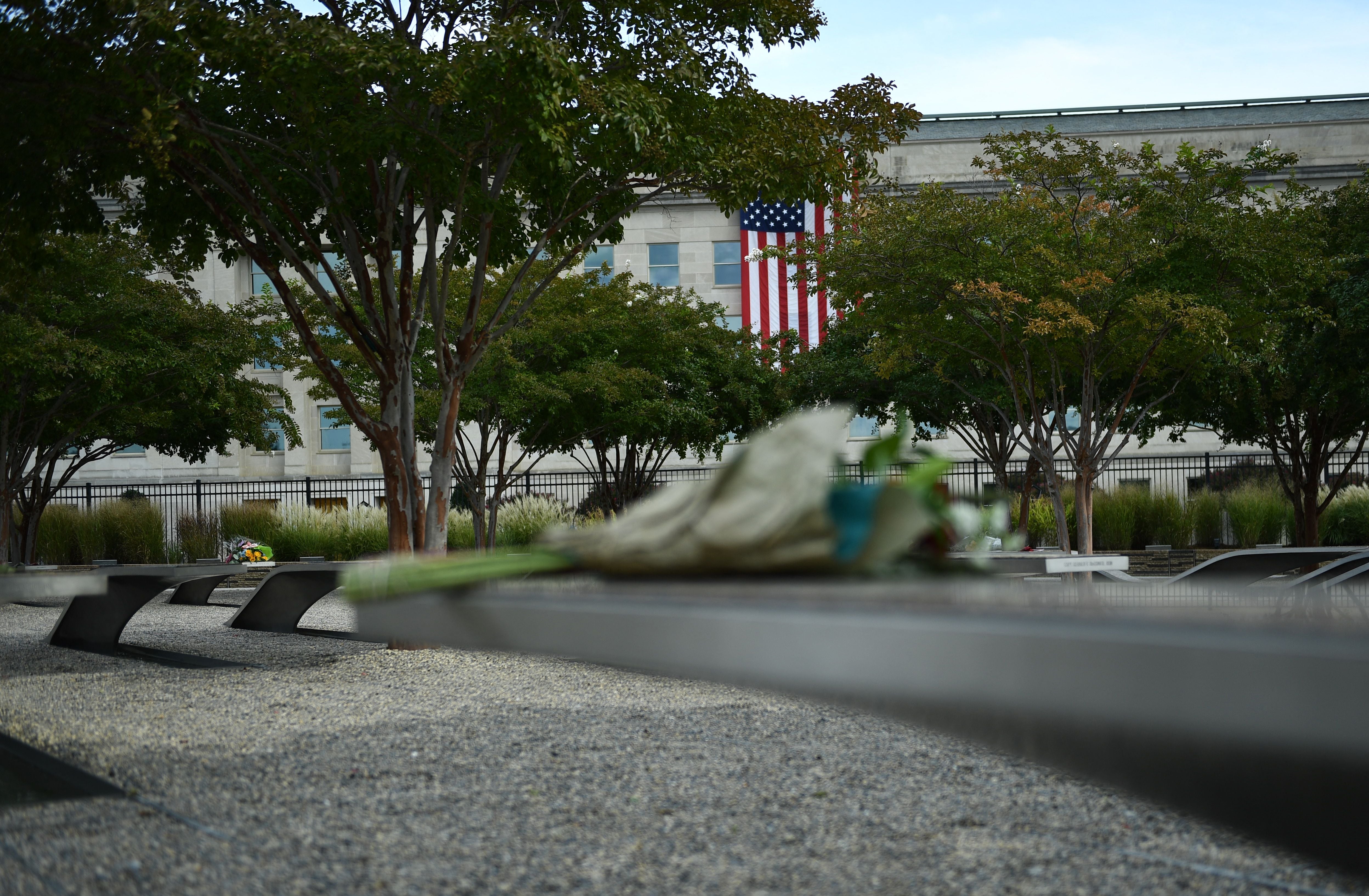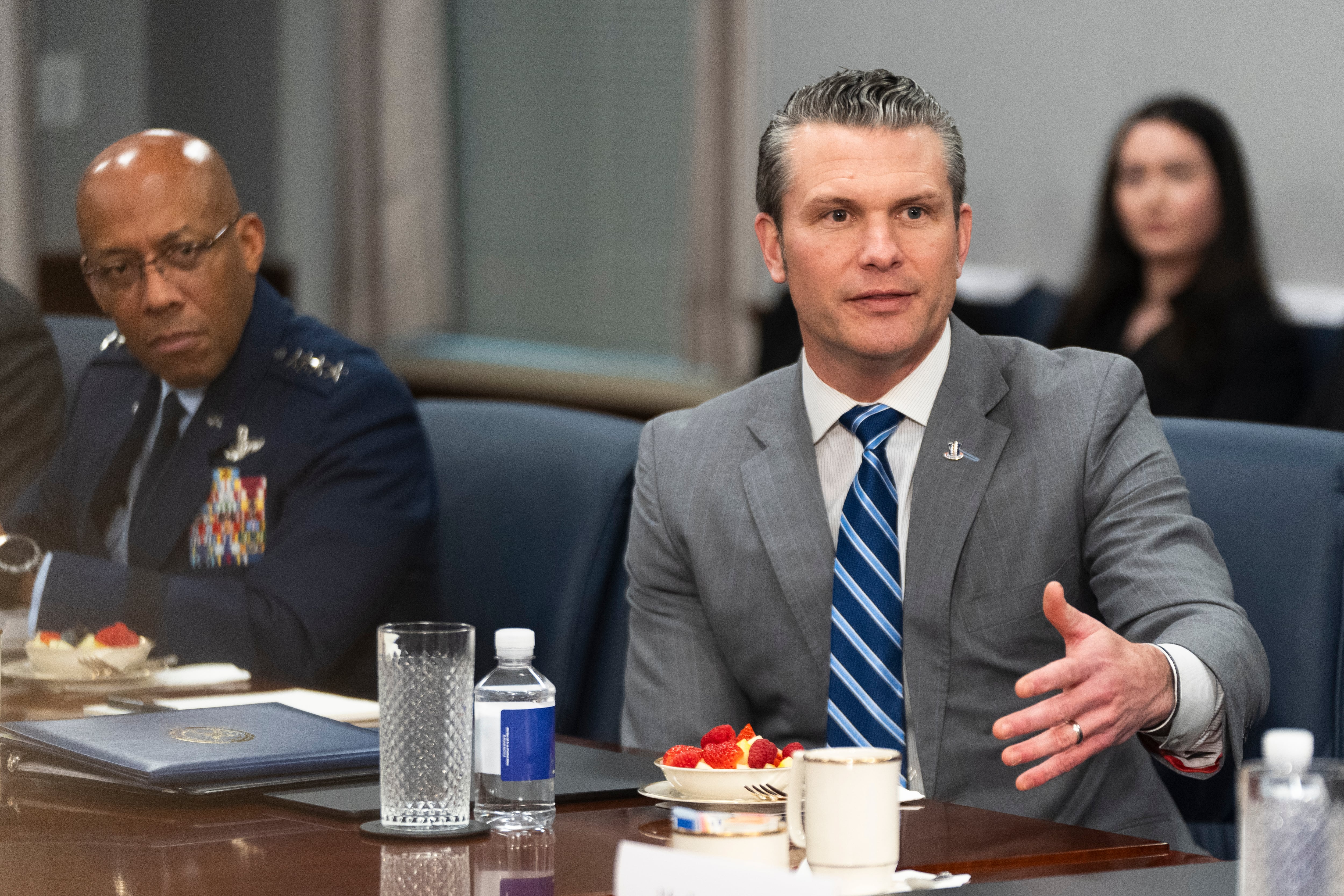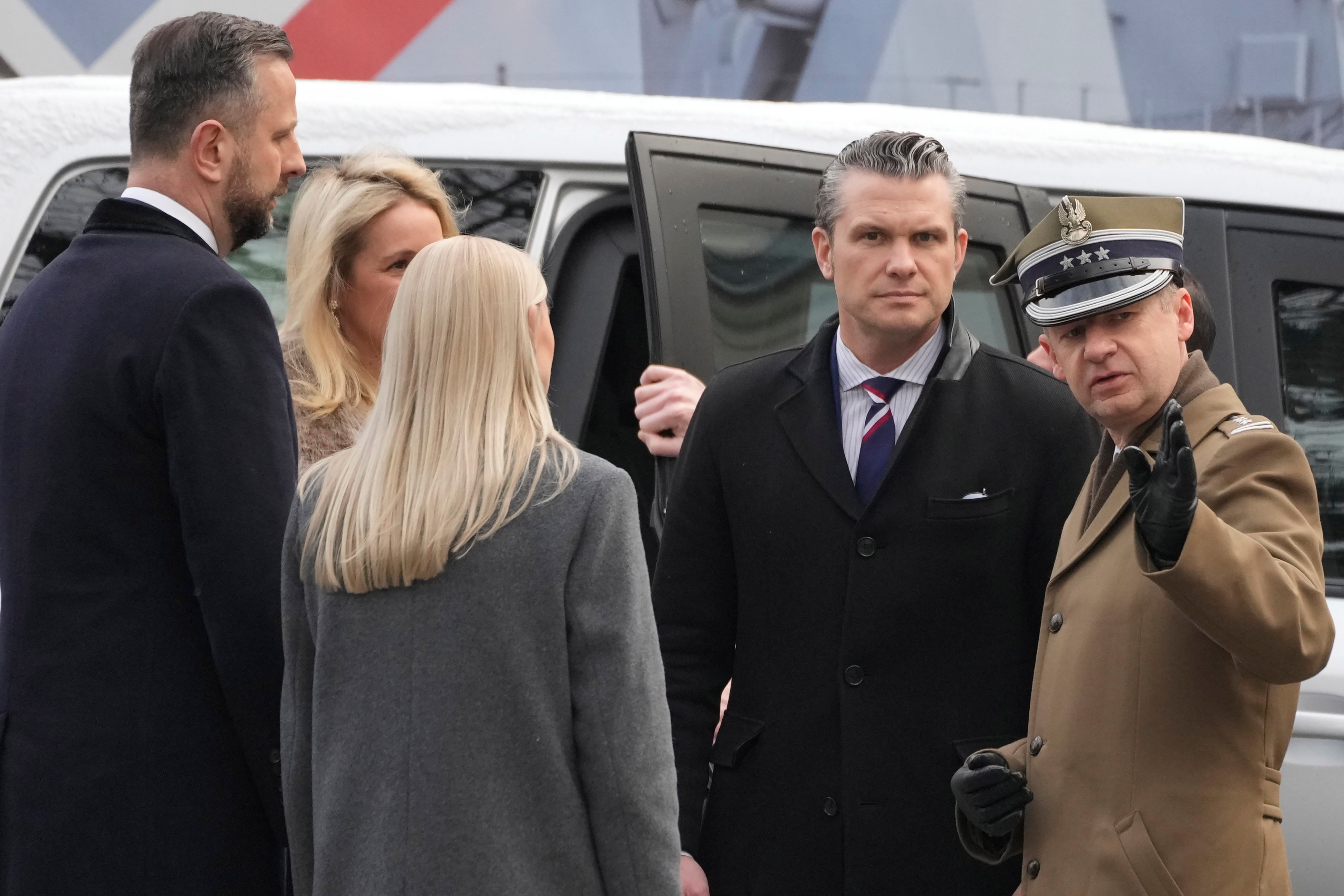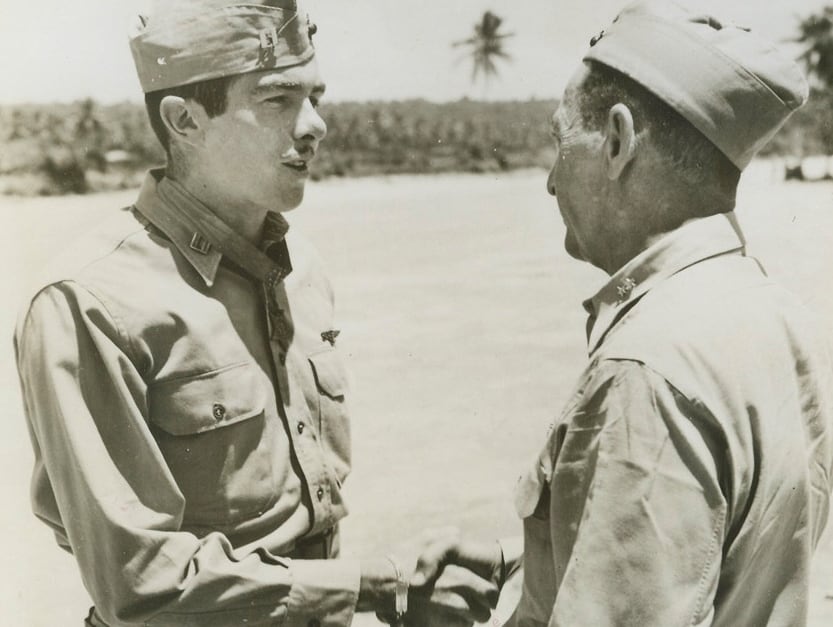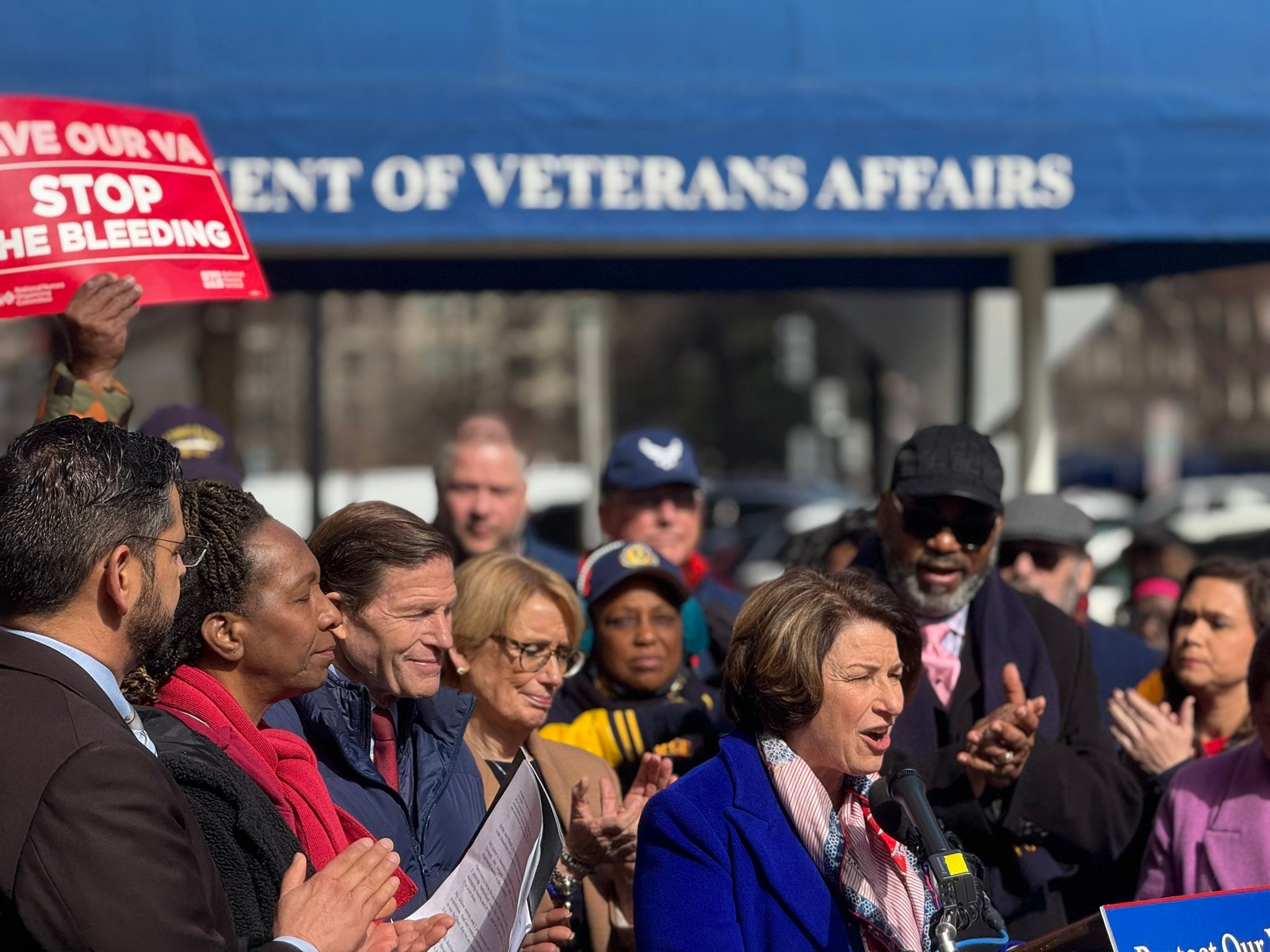source GAIA package: Sx_MilitaryTimes_M6201210204160301_5675.zip Origin key: Sx_MilitaryTimes_M6201210204160301 imported at Fri Jan 8 18:18:06 2016
Within the span of a week, two female airmen who were awarded the Bronze Star have been targeted by cyber bullies who claim they do not deserve their awards, generating a wider discussion of who should be eligible for the Bronze Star Medal and whether the Air Force issues too many of the medals.
The controversy began in late March after the Air Force posted a story online about Tech. Sgt. Christina Gamez, a financial analyst with the 802nd Comptroller Squadron who received the Bronze Star on March 14 at Joint Base San Antonio.
"Gamez distinguished herself by meritorious achievement as the [noncommissioned officer] in charge during a 365-day deployment, January 2011 to January 2012," the story said. "While in Afghanistan, she accurately executed operational funds across eight remote bases, providing commanders with flexibility in support of counterinsurgency efforts. Gamez trained 68 operational fund teams, reviewed 34 projects and funded 280 joint acquisition board packages enabling critical base sustainment."
The story drew 70 online comments between March 26 and March 29, mostly from people who were livid because they said Gamez did not deserve to be recognized for doing her job.
"My brother in the army was awarded the bronze star with valor," one person wrote. "If I showed him this I bet he'd give it back. I'm sad to be an airman right now."
Some of the comments got nasty, accusing the Air Force of giving Gamez the award out of favoritism or because she is "a female or minority."
Others said Gamez did not deserve the Bronze Star because the award should recognize combat actions.
"If you really want a Bronze Star, go earn one the proper way on the battlefield fighting the enemy not handling finances and reports," one person wrote. "I can only hope that she will take a trip up to Arlington and think long and hard [and] leave the medal there where it belongs and never wearing it because she realized it was not earned."
Then on April 2, the Air Force posted a story about Tech. Sgt. Sharma Haynes of the 7th Comptroller Squadron at Dyess Air Force Base, Texas, who was awarded the Bronze Star for her meritorious service in Afghanistan.
"She fought through long days and expended every ounce of her expertise to develop the financial processes for the command," Air Force Capt. Anthony George, who nominated Haynes for a command award, said in the story. "She sought no personal benefit from her hard work, but she knew that she could improve the situation for special operations troops and the Afghan local police they partner with."
The story also drew stinging comments from people who said she didn't deserve her Bronze Star.
"Unbelievable," one person wrote. "Another person gets a BSM [Bronze Star Medal] for doing their job and never leaving the wire. The AF has seriously lost its focus on decorations and good people that probably deserve them aren't getting them."
Others opined that troops who actually deserve awards such as the Bronze Star are not getting them.
"To all those who have gone outside the wire and are going outside the wire wearing 70lbs of gear and return with no more than a thanks for doing your job, I'm sorry you have to see people get BSM that don't deserve them," one commenter wrote.
'Doing their job'
The story about Haynes was still online April 6, but the negative comments prompted the Air Force to take the story about Gamez off the Internet.
"The story was taken down because no one deserves that level of criticism for meritorious service in a combat zone," said David Smith, a spokesman for Air Education and Training Command, under which Gamez falls.
Smith said he has never seen such "hateful rhetoric" during his 47-year career with the Air Force, of which 30 years were on active duty.
His advice to people who have written negative comments about Gamez is to read the criteria for the Bronze Star.
"Because that explicitly defines what it takes and she met the criteria in the eyes of her supervisors," Smith said. "No one deserves that type of cyber bullying. That's unfair, because Sgt. Gamez was doing her job, and you don't bully people for doing their job."
Haynes could not be reached for comment by press time. In the story about her award, she said she was busy while deployed to Afghanistan, but it was time well spent.
"I know when most people see the news and read the papers, the majority of what they see are the bad things that occur here, but the U.S. presence is making a positive impact on this country," she said in the story.
Gamez declined to comment for this story. In the Air Force story that was taken off the Web, she was modest about receiving the award.
"Ask me to recognize anyone else and I can talk for days, but to brag about myself, I'm not the best," she said in the story. "I feel like I did my job, kept a very busy pace and made improvements any place I could."
Gamez and her husband, Master Sgt. Rudy Gamez, were both deployed to Afghanistan last year, leaving their young children with their parents. They wrote about their experiences on the blog "Double Duty: Know Before You Go" to help airmen prepare for their own deployments.
"I want people to understand the emotions of deployments from both sides," she said in a March 2011 American Forces Press Service news story. "I've been on the other side — left at home with a full-time job and then some, with two kids and no family in driving distance.
"Now I see it from the deployed side. I understand the need for a stronger emotional toughness so the deployment doesn't destroy you. It can be a helpless feeling over here at times, knowing you can only do so much to take care of the ones you love."
In one post, Gamez wrote about going to a hospital where Afghan women were recovering after a bomb had exploded on a bus they were riding. The women had not yet been able to bathe, so they had asked for women to help them.
"We met a mom with a broken jaw and her 2-year-old baby with two broken legs," Gamez wrote. "The baby has been waking up crying and clinging to her mom ever since the accident. We couldn't get her changed either because she was still so nervous around people and most likely in pain because of her legs."
Gamez and other women in her group met a small child who let them clean her up. The girl was put at ease after her father and an interpreter explained why Gamez and the others had come.
"I had brought some of my Bath and Body Works lotion thinking the girls might like it, since my daughter does, and we finally struck gold!" Gamez wrote. "Once we finished cleaning the little girl, we put on some of the coconut mango body lotion and she loved it so much, we got a smile. It really lifted our spirits to see that."
Meritorious service
Despite what their detractors think, Gamez's and Haynes' awards for meritorious service are the norm, not the exception. Of the 13,354 Bronze Stars the Air Force has awarded for the wars in Afghanistan and Iraq, 839 were awarded with valor for combat heroism, according to the Air Force.
Meanwhile, the Army has awarded 45,701 Bronze Stars for meritorious service and another 1,602 medals with "V" devices for operations in and around Afghanistan. The service also awarded another 108,775 Bronze Stars for meritorious service and 2,489 medals with "V" devices for the Iraq War.
That means about 6.3 percent of the Bronze Stars awarded by the Air Force are for combat valor, compared with about 2.6 percent of the medals awarded by the Army.
Lee Foster is CEO of Medals of America, which sells military awards to active-duty service members and veterans who either can't shop at the PX on base or who need to update their uniforms in a hurry for a promotion ceremony.
Up to 75 percent of the Bronze Stars he sells are for meritorious service, said Foster, who spent 15 years in the Army. The Marine Corps typically awards the fewest Bronze Stars, the Army is more generous and the Air Force falls between the two.
"It really is for meritorious service, but it can also, secondarily, be awarded for valor," Foster said. "Ever since World War II through Korea and Vietnam, the bulk of these have always been awarded for meritorious service. Now where it gets confusing is it's usually meritorious service in a combat theater."
Still, Tech. Sgt. Heather Penhallegon said she couldn't tell from the story the Air Force posted about Gamez why she deserves the Bronze Star.
"I'm just going off of what I read on her citation that was published on the Randolph [Air Force Base, Texas] website, and I'm trying to find where in there is there anything unique that says she deserved this," Penhallegon told Air Force Times. "It's not a 'give me' medal. It's something you have to earn."
All troops who deploy serve bravely and meritoriously, and that means the Bronze Star is reserved for troops who go above and beyond, such as the Rhode Island National Guardsman who died while saving an Afghan girl from being hit by an armored vehicle, Penhallegon said.
"That was courageous — criteria met, hands down, nobody would argue about that," she said. "But — and I'm not knocking finance and everything they do — but telling people to take care of your pay when you get back to the United States doesn't earn a Bronze Star, I don't think."
Penhallegon said she believes Gamez was awarded the Bronze Star just for deploying, and that cheapens the award itself.
"I don't have a whole lot of sympathy because people deploy all the time and in a lot worse conditions than an installation — not even an FOB, but an installation," Penhallegon said. "You know what, if she deserves it, fine, then the Air Force should have spun it better. They should have really presented it better because the blowback that is coming off of this, I am not surprised at all."
Too many awards?
Retired Master Sgt. Greg Atkins told Air Force Times he believes Bronze Stars are issued too liberally to people who are just doing their job while deployed.
"When people serve 365 days in Afghanistan or somewhere, instead of a commendation medal or a [Meritorious Service Medal], they give them a Bronze Star for some reason because they take that one section where it says 'act of merit' … they kind of take the gray area and just kind of run with it and if the approving board agrees with it, that's all that really matters," he said. "Anyone can get a Bronze Star."
But the Bronze Star was awarded more frequently in the past, said Doug Sterner, who maintains the Military Times Hall of Valor database of military awards.
"I do not see these meritorious service awards as being overly inflated," said Sterner, a Vietnam veteran. "If anything, I don't think they're giving enough of them out."
After World War II, the Bronze Star was authorized for every infantryman and medic who had received the Combat Infantryman's Badge and the Combat Medical Badge, all troops who served in the Philippines between December 1941 and May 1942, and the entire 101st Airborne Division, Sterner said.
"I certainly wouldn't want to go back to any of these half a million Vietnam War veterans who got meritorious Bronze Stars and start questioning them," he said.
Sterner called the people who criticized Gamez "small-minded."
"I read through the comments on that story and I thought, 'Come on, give me a break,'" he said. "Instead of picking at [Gamez], you should be happy that an airman is being recognized for doing a good job, and that is what a meritorious service Bronze Star does."

